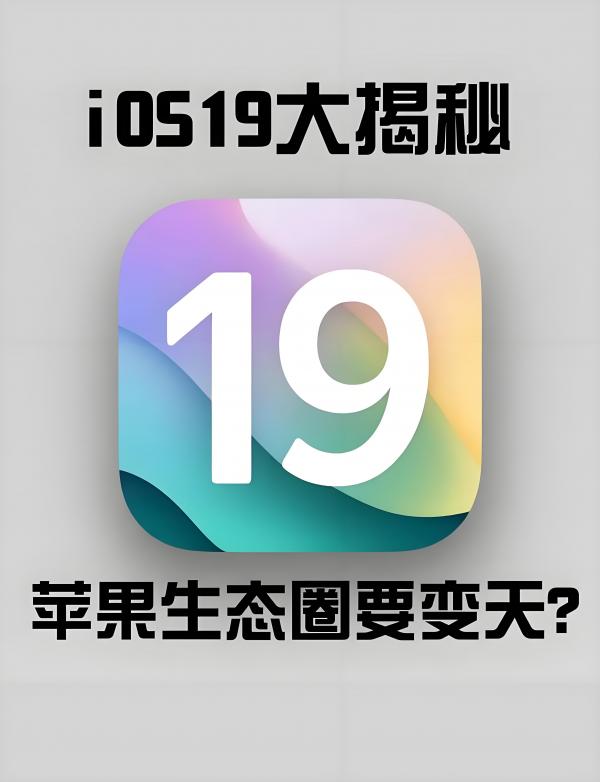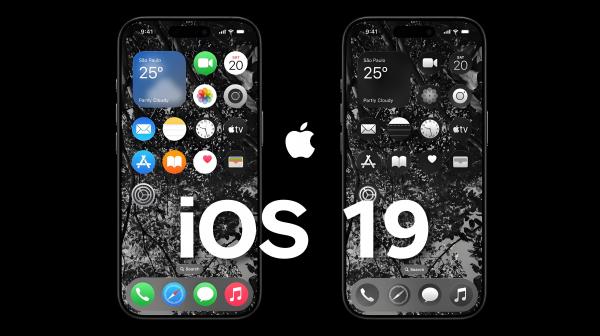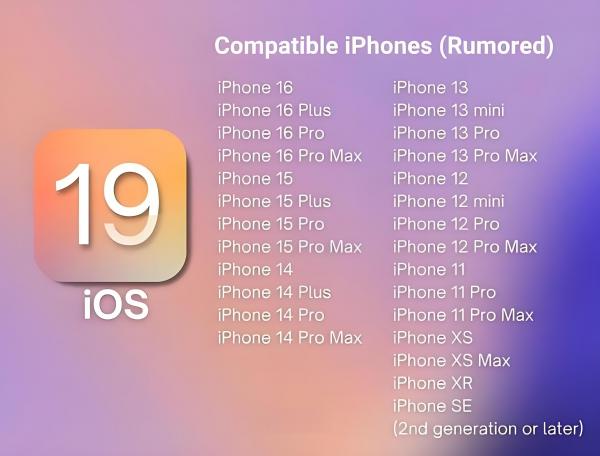iOS 19 Unveils the Most Significant Innovation in 12 Years: Apple's WWDC25 Promises to Amaze!
![]() 06/02 2025
06/02 2025
![]() 809
809
In the fiercely competitive smartphone market of 2025, Apple, a global technology pioneer, is set to introduce its highly anticipated new operating system – iOS 19. Scheduled to make its debut at the Worldwide Developers Conference (WWDC) on June 9, 2025, the system will be followed by a developer beta release, a public beta in July, and a full release in September alongside the iPhone 17 series (comprising iPhone 17, 17 Pro, 17 Pro Max, and 17 Air). iOS 19 promises not only an enhanced experience for new devices but also substantial performance and feature upgrades for existing users. Recent leaks have showcased numerous highlights of iOS 19, from design to AI and accessibility improvements, reflecting Apple's commitment to cutting-edge technology. Here's an in-depth look at the system, offering a glimpse into its allure!

Firstly, iOS 19's interface design stands out as one of its most significant highlights, anticipated to bring the most substantial visual changes in recent years. Inspired by Apple Vision Pro's visionOS, the system will feature translucent menus, glass-like effects, and rounder app icons, creating a refreshing and modern visual style. Core apps like Camera and Messages will receive new interfaces: Camera will sport a streamlined design with unified controls and faster gesture navigation, enabling users to switch shooting modes and adjust settings more efficiently. Messages will introduce rounded, transparent buttons and a persistent search bar, enhancing interaction convenience. The camera and flashlight icons on the lock screen may include dynamic sheen effects, subtly changing with device movement, offering a futuristic interactive experience. The system may also add a floating navigation bar and pill-shaped tab bar, providing a more dynamic way to navigate apps and menus. This design not only elevates the aesthetic appeal but also optimizes operation smoothness and responsiveness, making the user experience more intuitive. Furthermore, this design language is expected to extend to iPadOS 19 and macOS 16, fostering a unified aesthetic across the Apple ecosystem.
Artificial Intelligence is the cornerstone of iOS 19. Apple's virtual assistant Siri will undergo a significant upgrade, integrating more deeply into the operating system and third-party apps. Siri will now understand users' personal contexts and perform complex tasks based on usage habits, such as arranging transportation for family members, automatically organizing emails, or providing suggestions based on screen content. Rumors suggest that Apple might collaborate with Google to integrate the advanced Gemini AI model into Siri, enabling it to handle more complex queries and provide more precise answers. However, some advanced AI features may not be available in the initial release but instead postponed to subsequent updates like iOS 19.1 or 19.4. The AI battery management feature optimizes power consumption by learning user habits, significantly extending iPhone battery life. The lock screen will now display charging time, allowing users to plan their usage time more effectively. Additionally, iOS 19 may introduce smarter photo editing tools that automatically enhance images or generate personalized content, further enhancing the user experience.
iOS 19 also brings several practical features. AirPods will support real-time translation, allowing users to instantly convert languages with AirPods on, significantly facilitating travel and international communication. The Public Wi-Fi upgrade feature will enable users to sync login information across all Apple devices after entering it once, making connecting to coffee shop or hotel networks more convenient. Stage Manager may extend to the iPhone, enabling multitasking and window management functions similar to the iPad when connected to an external display, boosting productivity. The Health app will also receive an update, introducing an AI-driven health coach that provides personalized health suggestions and supports food intake tracking, expected to launch in spring 2026, bringing a new dimension to health-conscious users. Furthermore, iOS 19 may support end-to-end encrypted RCS messaging, enhancing privacy and security when communicating with Android devices.

Apple has always been dedicated to improving device accessibility, and iOS 19 excels in this regard. The new system introduces a series of accessibility features designed to make the iPhone more user-friendly for individuals with disabilities. For example, the App Store will add accessibility nutrition labels, highlighting apps that support specific accessibility features. The system-wide accessibility reader will provide customizable text options, making it easier for users to adjust fonts and colors. CarPlay will be upgraded to support large text display and sound recognition functions, capable of identifying alerts like baby crying or sirens. Other features include improved personal voice generation technology that can create natural speech with just 10 sentences, expanded sound recognition that can identify users' names, and eye-tracking and head-tracking tools to facilitate device operation for users with mobility issues. Additionally, iOS 19 will introduce music haptic feedback, allowing users to customize haptic feedback for songs; voice control will support more languages and better integration with development tools; and real-time captions will be extended to more languages. These features collectively ensure that iOS 19 is a more inclusive system.
Performance and stability are another primary focus of iOS 19. Apple aims to reduce system bugs through optimization, delivering a more reliable user experience. Unlike the concentrated release of AI features in iOS 18, iOS 19 may continue the phased release strategy, gradually introducing new features to ensure system stability. This strategy has already proven effective in iOS 18 and is expected to be further refined in iOS 19. System fluidity is anticipated to increase by 30%, with enhanced background retention capabilities supporting seamless switching between over 200 apps, smoother animation effects, and reduced frame drops, providing users with a near-perfect operating experience.
Regarding device compatibility, iOS 19 is expected to support iPhone 11 and newer models, including the iPhone 11 series, 12 series, 13 series, 14 series, 15 series, 16 series, and the upcoming iPhone 17 series. However, there is some debate over whether the iPhone XR, XS, and XS Max will support iOS 19. Some sources suggest that these models may be excluded, while others indicate that all devices that support iOS 18 will be compatible with iOS 19. The final compatibility list will require official confirmation from Apple. Some advanced features may necessitate more high-end devices, such as the iPhone 15 Pro or 16 series.

Ultimately, the release of iOS 19 will solidify Apple's leading position in the operating system domain, competing directly with systems like HarmonyOS and Android 16. Users anticipate a smoother, more intelligent experience, but the delay of advanced AI features and compatibility issues with older models may spark discussions. Apple needs to prioritize optimization to ensure the stability of new features. Overall, with its bold design innovations, powerful AI capabilities, and considerate accessibility experiences, iOS 19 is poised to be a landmark update for Apple's mobile operating system. As WWDC 2025 approaches, anticipation for iOS 19 continues to grow, and users eagerly await exploring the full potential of this new system later this year!






